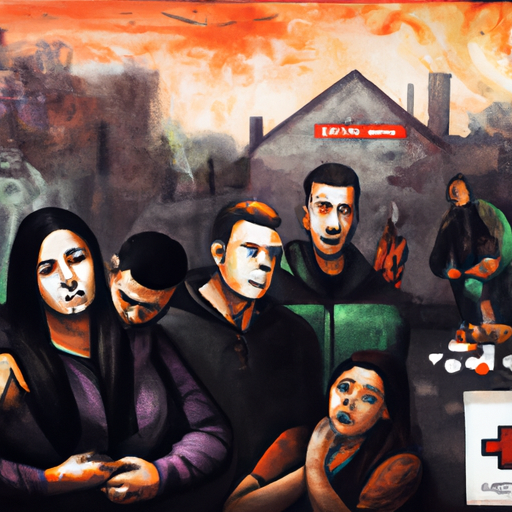Tackling Health Inequity, Racism, and Opioids in Canada: A Call to Action on the Country’s Major Health Crises
Welcome back to our blog. Today, we continue the conversation on the pressing issue – the Canadian opioid crisis – a widely spreading health crisis not just bearing a heavy toll on the lives of individuals, but also contributing to significant societal issues such as homelessness, crime, and health inequity. The crisis has been further compounded by systemic racism, creating an unfortunate but real barrier for many struggling with opioid addiction to get the help they need. A compelling piece we found in the Times Colonist, which I’ll invite you to read here, delves deeply into these issues.
The Facts: Opioids & The Root Causes of Crisis
The opioid crisis in Canada presents a grim picture. As per the source, close to 23 Canadians die every week as a direct result of opioid overdose. These victims cut across all walks of life – young, old, rich, poor, urban, and rural.
Opioids & Homelessness – A Vicious Cycle
A stark proportion of the victims are homeless. This link between opioid addiction and homelessness is deeply interconnected. The pain and hardship of living on the streets can, and does, unfortunately, drive homeless individuals to substance misuse, opioids included. Conversely, those suffering from opioid addiction often spiral into homelessness as their lives derail. Fiscal troubles and social isolation caused by addiction often lands them on the streets – a perfect storm of despair.
Unraveling the Opioid-Crime Nexus
The opioid crisis also has widespread ramifications on crime. From illicit drug trafficking to addiction-induced thefts and burglaries, opioids and crime share a fraught relationship.
Significance of Naloxone
In handling opioid overdoses, a life-saving drug called naloxone has proven invaluable. Naloxone can rapidly reverse the effects of an opioid overdose if administered promptly. But the accessibility is something to be addressed to make a significant impact.
Systemic Racism and Health Inequity
Systemic racism forms a crucial factor in the opioid crisis, adding complexity to the issue. As per our source, Indigenous Canadians are severely affected. The systemic racism they face in healthcare delivery worsens their plight. Health inequity is rampant, with barriers to proper medical care and addiction recovery programs, at a time when they need it the most.
Resolving the Crisis: It Needs More Than Just Words
Tackling the opioid crisis calls for combative efforts from policy leaders and healthcare professionals. This issue cannot just be recognized, it needs to be actively addressed. Disappointingly, current government actions have not lived up to the severity of the crisis.
Key Points to Ponder:
- The correlation between homelessness and opioid addiction.
- The role opioids play in driving crime rates.
- The life-saving role of naloxone and its accessibility.
- The impact of systemic racism and health inequity on the spread of opioid addiction.
A Final Word
The Canadian opioid crisis is punitive, spiraling and multi-faceted. As we continue to grapple with the situation, it is pertinent to remember that this crisis is not just about opioids. It is a crisis about homelessness, systemic racism, health inequity, crime and the need for better accessibility of naloxone. Effectively mitigating the opioid crisis calls for deep introspection, collective effort, and proactive measures on the part of our leaders. We should strive for a comprehensive and empathetic response that necessarily extends beyond just policy, but seeps into our societal attitudes towards addiction and those caught in its relentless grip.


